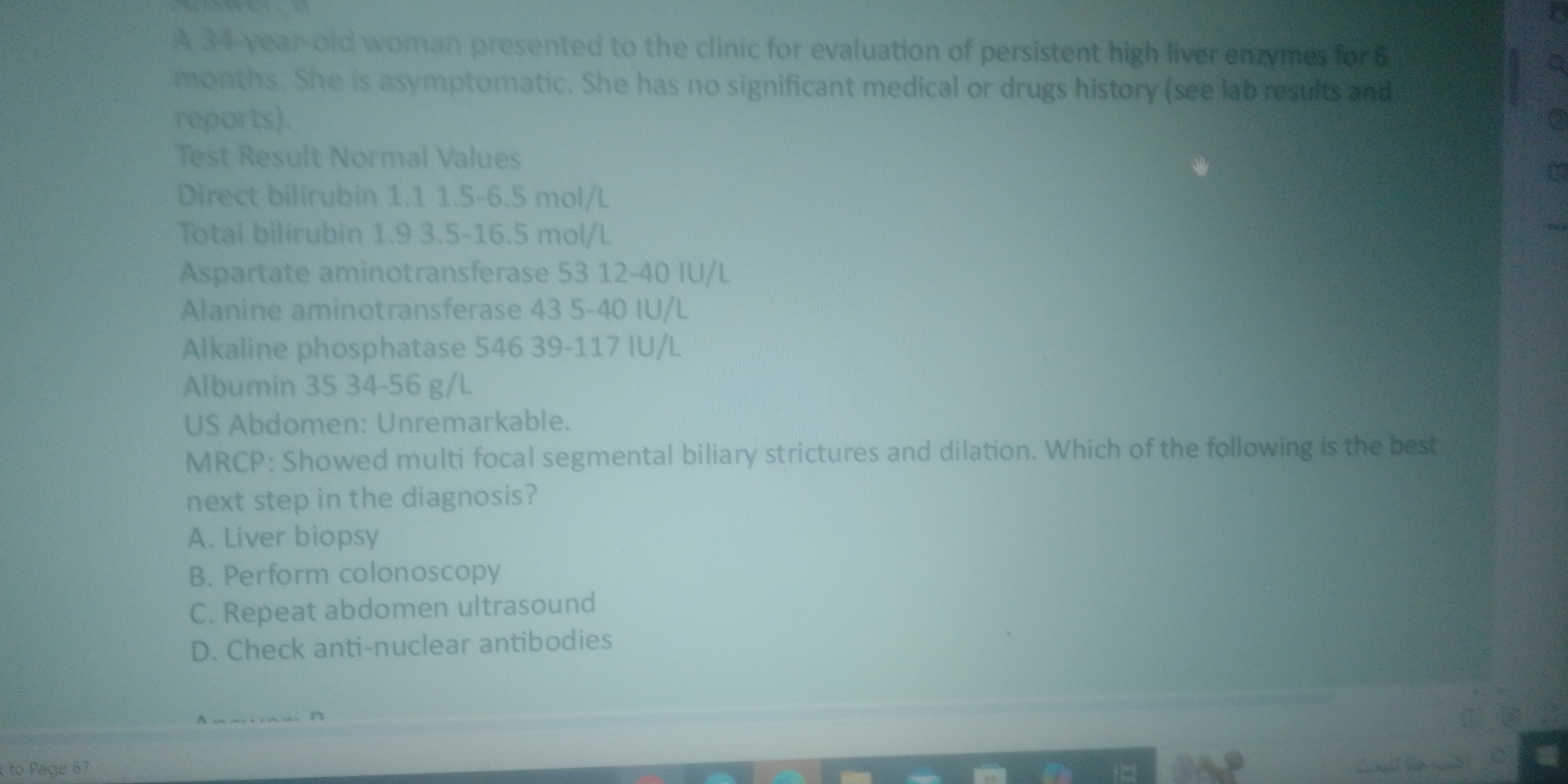A 34-year-old woman presented to the clinic for evaluation of persistent high liver enzymes for 6 months. She is asymptomatic. MRCP showed multi focal segmental biliary strictures... A 34-year-old woman presented to the clinic for evaluation of persistent high liver enzymes for 6 months. She is asymptomatic. MRCP showed multi focal segmental biliary strictures and dilation. Which of the following is the best next step in the diagnosis? A. Liver biopsy B. Perform colonoscopy C. Repeat abdomen ultrasound D. Check anti-nuclear antibodies

Understand the Problem
The question is asking which diagnostic step is the most appropriate for a 34-year-old woman with persistent high liver enzymes and imaging findings, considering the results from the MRCP that indicated multifocal segmental biliary strictures and dilation.
Answer
B. Perform colonoscopy.
The final answer is B. Perform colonoscopy.
Answer for screen readers
The final answer is B. Perform colonoscopy.
More Information
Performing a colonoscopy is important in this scenario due to the association between primary sclerosing cholangitis (PSC) and inflammatory bowel disease (IBD), such as ulcerative colitis. Identifying IBD can aid in the diagnosis and management of PSC.
Tips
A common mistake is to perform a liver biopsy, but this typically confirms suspicion rather than diagnosing PSC.
Sources
- Primary sclerosing cholangitis: A review and update - ScienceDirect - sciencedirect.com
AI-generated content may contain errors. Please verify critical information